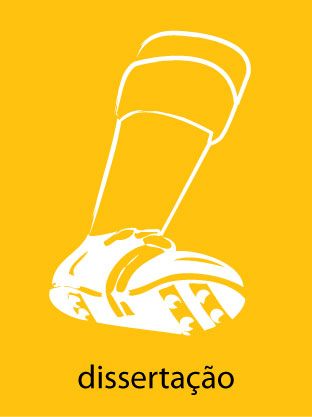Neste estudo pretendeu-se verificar o raciocínio moral implicado no julgamento de lances futebolísticos, na perspectiva do árbitro de futebol de campo. Para compreender e buscar explicações sobre ato de julgar tomou-se como referencial o construto teórico de Jean Piaget, referente ao juízo moral, incluindo o conceito de justiça que tem início com a noção de justiça imanente, evoluindo para a justiça retributiva e, finalmente, conquistando seu estágio mais refinado, a justiça distributiva, cujo estabelecimento reflete a mudança de um tipo de moral heterônoma para uma autônoma. Por outro lado, levou-se também em consideração a teoria de Lawrence Kohlberg, que aprofundou os estudos de Piaget, preconizando a existência de três níveis no desenvolvimento moral (pré-convencional, convencional e pós-convencional), desdobrados em seis estágios, que ele considerou universais. A amostra foi composta por 91 respondentes do sexo masculino, com idade média de 34 anos, sendo 61 árbitros pertencentes a duas Federações de Futebol sediadas no Nordeste brasileiro, e 30 torcedores de clubes também nordestinos, com os quais o pensamento dos árbitros foi contrastado. Para dar acesso ao fenômeno pretendido, os participantes analisaram, julgaram e responderam por escrito a oito situações hipotéticas, sendo quatro dilemáticas e quatro não dilemáticas, ocorridas no ambiente do futebol e fora dele. Os resultados indicaram que árbitros e torcedores apresentavam mais semelhanças do que diferenças, quanto aos critérios utilizados no julgamento, à discordância sobre decisões que representavam injustiça e quanto à coerência entre o julgamento que faziam sobre as ações morais dos outros e as suas próprias. À luz dos estudos de Kohlberg, no julgamento de situações que denotavam lances futebolísticos, predominou o raciocínio moral convencional, com aplicação da justiça distributiva do estágio 4. Sob a ótica da teoria de Piaget, verificou-se que o raciocínio moral autônomo estava implicado no julgamento dos referidos lances, com predominância da justiça distributiva igualitária nas situações futebolísticas não dilemáticas e da justiça distributiva eqüitativa nas futebolísticas dilemáticas. A pesquisa colaborou para ampliação dos conhecimentos da Psicologia do Desenvolvimento Moral do adulto, objetivando instigar o debate teórico sobre o tema, na área da Psicologia Cognitiva e Psicologia do Esporte, esperando-se, por outro lado, que a difusão destes conhecimentos, na comunidade científica ou fora dela, possa ter reflexos na prática da arbitragem do futebol, tendo em vista uma maior conscientização dos simpatizantes e dos próprios árbitros, sobre a relevância de seu trabalho dentro de campo.
Palavras-chaves: árbitro de futebol; julgamento moral; raciocínio moral, justiça.


